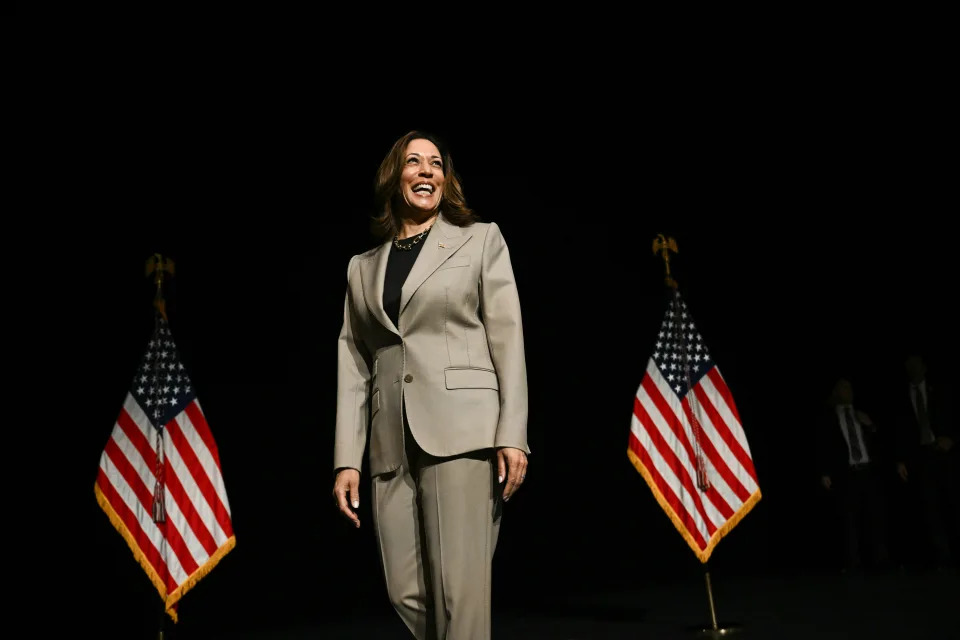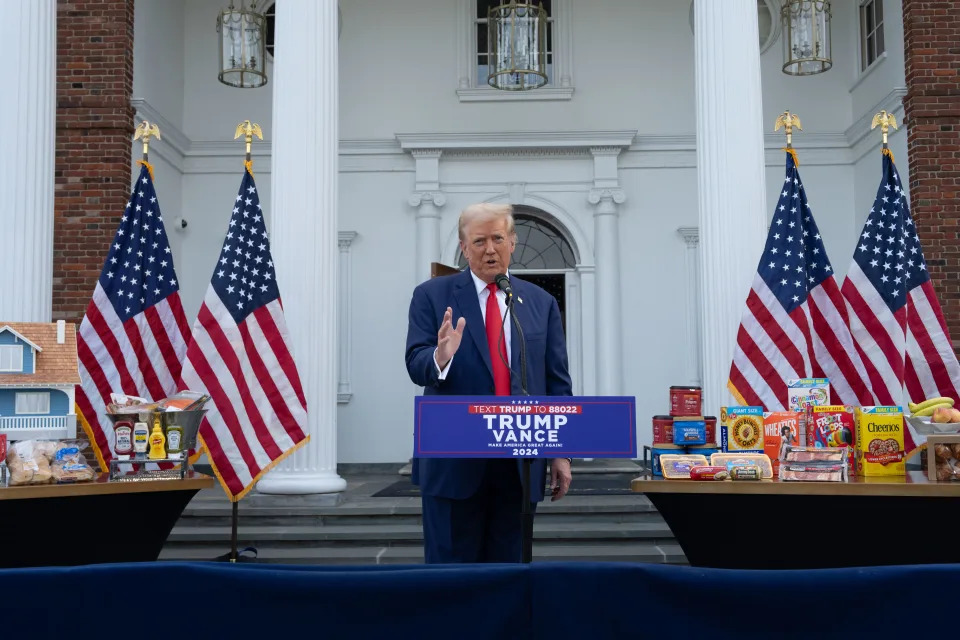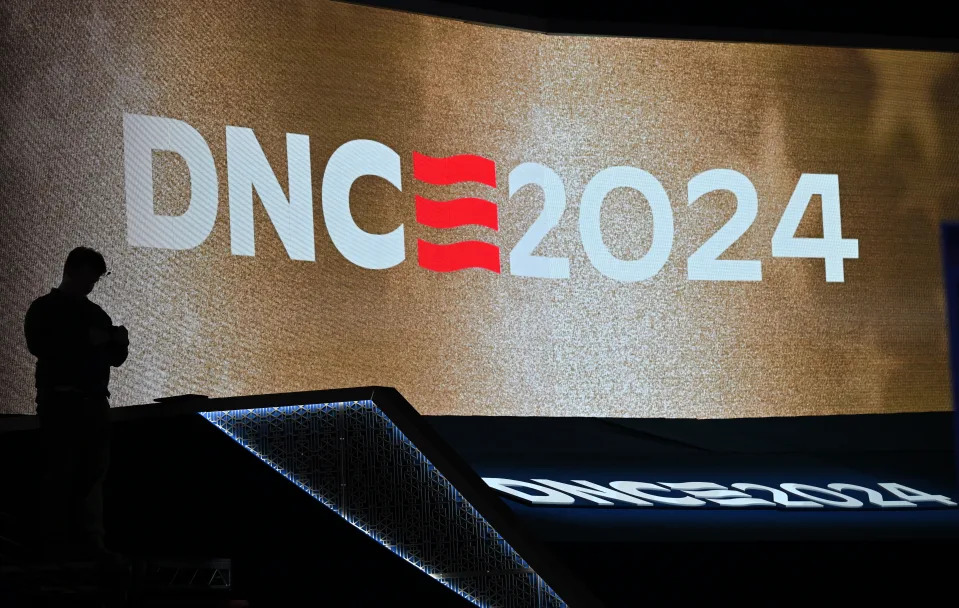What we know (so far) about Kamala Harris’s economic plan
Vice President Kamala Harris will began to lay out her plans for the US economy this afternoon in a speech focused on everything from housing costs to grocery store prices.
It will be the Democratic nominee’s first extended foray into economic policy since announcing her run for the presidency.
The plan "will address some of the sharpest pain points American families are confronting and bolster their financial security," the campaign said in a statement.
Her 2:45 pm ET address in Raleigh, NC will likely highlight a critical view of corporate mergers, signal new efforts to drive down healthcare costs, and unveil a push to expand the child tax credit to $6,000 for the first year of a child’s life.
Her new plan also includes a new first-time homebuyer credit of $25,000.
The speech is an an attempt by the campaign to keep its political momentum going with a focus on kitchen table issues and everyday costs after Harris has moved into a seeming tie with former President Donald Trump ahead of next week’s Democratic National Convention in Chicago.
But the speech is also likely to still leave key areas of the potential Harris economic agenda largely undefined on a series of issues ranging from many key tax issues to manufacturing policy to the ballooning national debt .
Here’s what this week’s high-profile rollout tells us so far about Harris’s economic plans and what still remains to be sketched out in the weeks ahead.

A focus on the tricky issue of housing
The plan released Friday includes several efforts aimed at the housing market, a source of stubborn price pressures even as overall inflation cools.
The stickiness of housing costs increases are still largely attributed to a low supply of housing stock. To combat that issue, the vice president announced a plan for a series of proposed tax breaks that her campaign said could result in the construction of 3 million housing units in the coming 4 years.
On the supply side of the equation, the plan includes a proposal for what the campaign is calling a first-ever tax incentive for building starter homes. This is a credit that would go to home builders who build homes that are eventually sold to first-time homebuyers.
The plan also proposes a new $40 billion innovation fund that would focus on local governments and their rental markets.
Finally there would be a credit for homebuyers. Harris is set to ask Congress, if she wins, for a new first-time homebuyer credit of $25,000 to go toward down payments of people in good standing looking to buy a first home. President Biden had previously called for a $10,000 credit.
Harris is also set to tout other plans that will focus on abuses in the housing market, including a long-languishing bill on Capitol Hill called the Stop Predatory Investing Act.
For his part, Trump has often discussed opening new federal lands to development as a way he would bring down housing costs.
He has also already slammed the Harris economic rollout, calling the proposal a "fake economic plan" in appearances in North Carolina and in New Jersey this week.
He charges that her various plans are meaningless because she has been in office for the last three and a half years, during which time she could have implemented her ideas already.
"Just remember, she goes to work every morning in the West Wing," Trump told the crowd Wednesday in Asheville, NC.

A keen interest in grocery store prices and healthcare costs
The Harris/Walz campaign plan released Friday also includes a focus on prices at the grocery store and at the doctor's office.
Harris will announce plans in her speech for what she calls a federal ban on food "price gouging" — which would be accomplished through new rule-making authority at regulatory agencies like the Federal Trade Commission (FTC).
She is also likely to signal a critical view of food industry mergers with a preview of her speech also calling out a proposed merger between Kroger ( KR ) and Albertsons ( ACI ) as an example of a combination that could create higher grocery prices.
The vice president is also set to focus on medical costs in her address.
One idea from Harris would be to expand on an accomplishment of the Biden administration and cap the cost of insulin at $35 and out-of-pocket expenses for prescription drugs at $2,000 for everyone.
What Biden signed into law, in the 2022 Inflation Reduction Act, were similar limits but just for seniors.
Harris would also accelerate the ongoing Medicare drug price negotiations that were also enacted in the 2022 law. The Biden administration released its first wave of negotiated prescription drugs prices that it said will save $6 billion.

The new Harris plan also includes efforts around medical debt, including a push to remove those charges from credit reports and also continuing a Biden administration effort to cancel up to $7 billion in existing medical debt.
Trump has sketched out less detail on healthcare issues, but in his economic speech Wednesday in North Carolina he said that he wouldn’t necessarily seek to repeal the 2010 Affordable Care Act — as he did in his first term in office — but would only reform if a better plan emerges.
"We're going to keep it" unless we can come up with something better, he told the crowd in Asheville.
Harris is also set in her speech, as expected, to renew her calls for an expansion of the Child Tax Credit and is even suggesting a $6,000 credit to families with newborn children.
The plan would include this credit for the first year of a child’s life and then a $3,600 per child tax credit for qualifying families in the following years.
The proposal comes after GOP Vice Presidential nominee JD Vance floated the idea of a $5,000 credit last weekend in a television appearance.
Harris is also proposing an expansion of the Earned Income Tax Credit, a credit focused on low- to moderate-income workers and families.
Ben Werschkul is Washington correspondent for Yahoo Finance.




